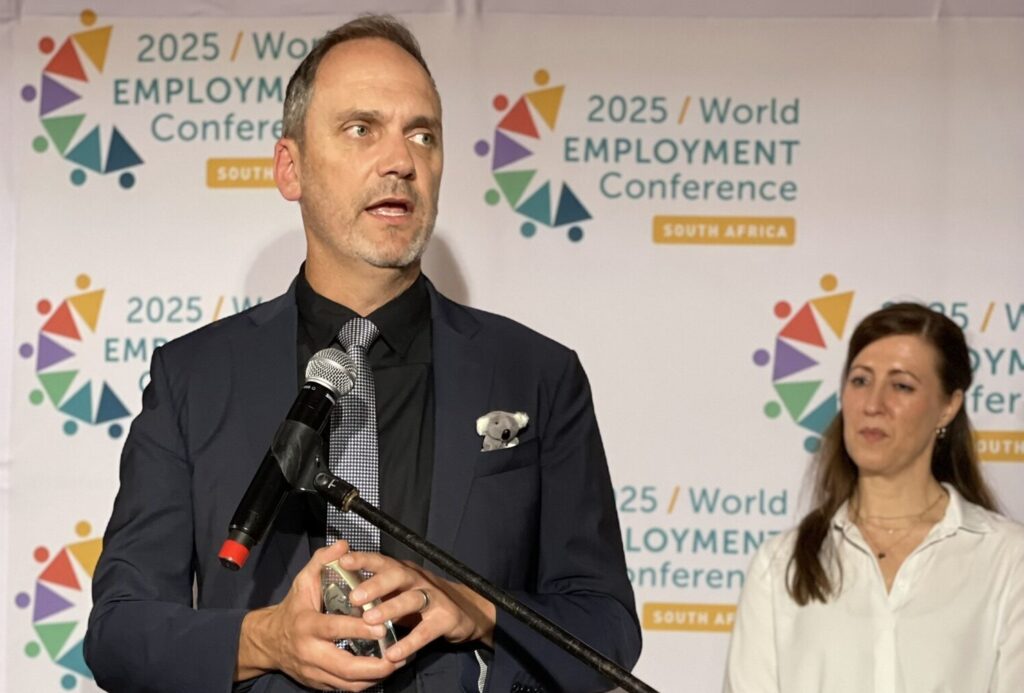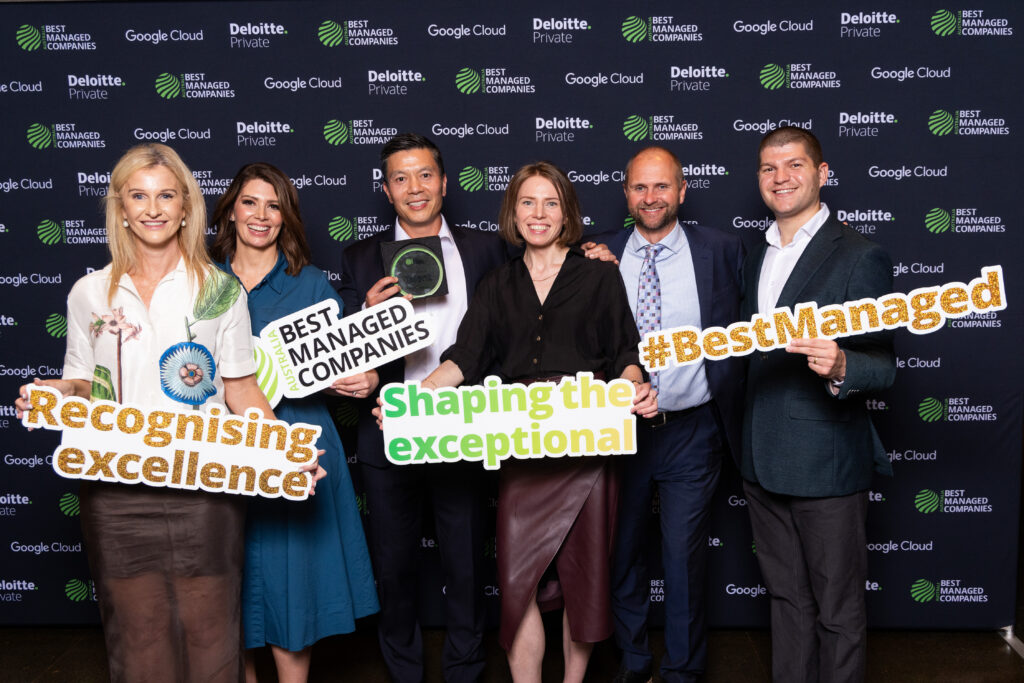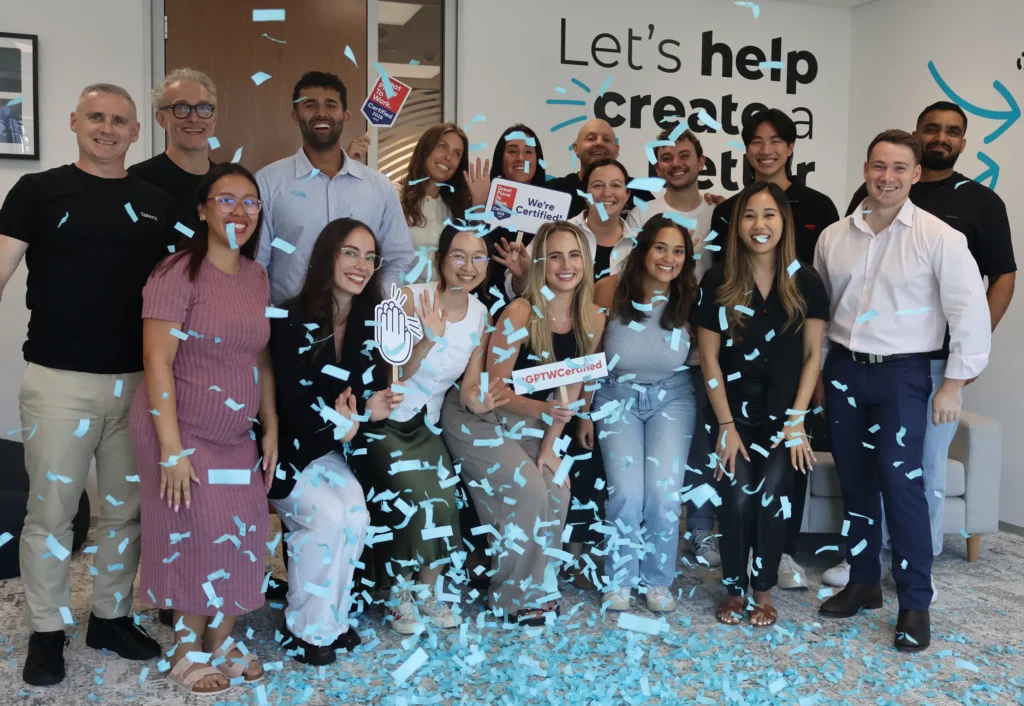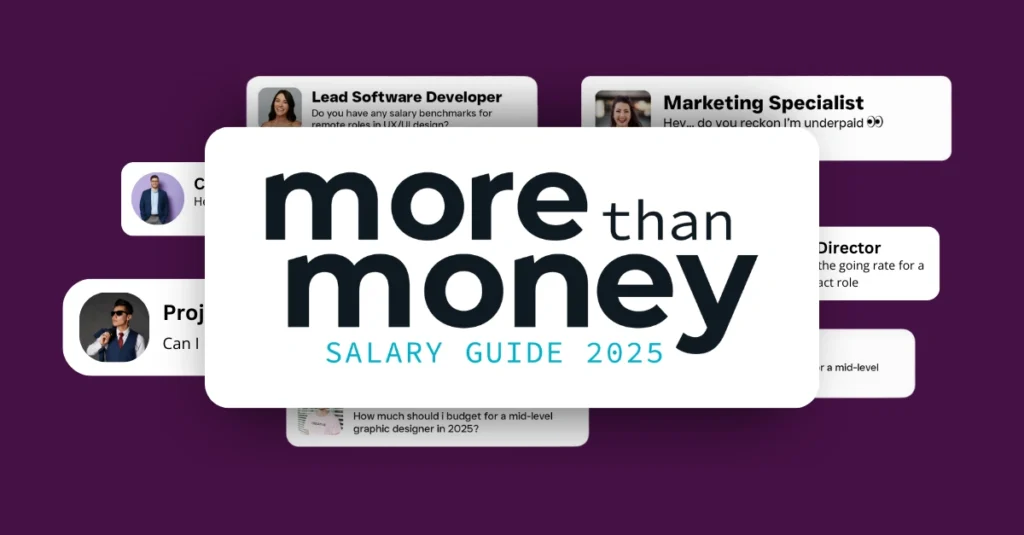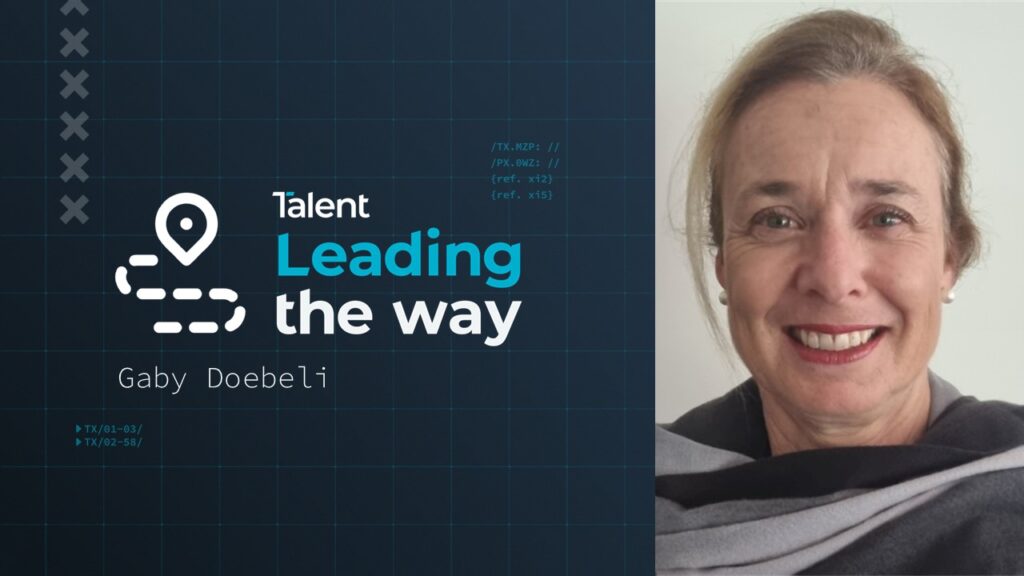
Labor vs Liberal: How the 2025 federal election could impact Australia’s hiring market
Labor vs Liberal: How the 2025 federal election could impact Australia’s hiring market
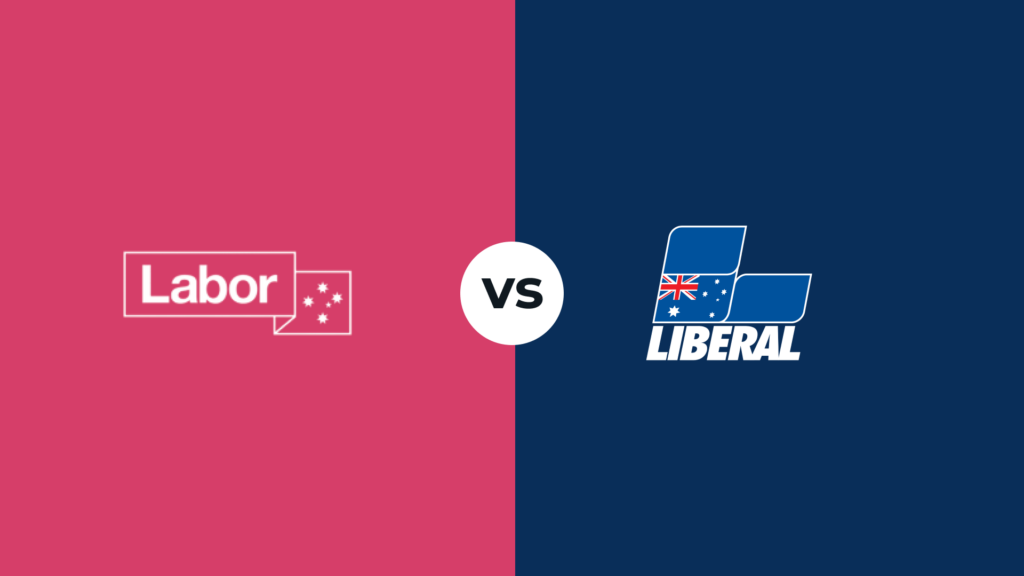
With the election fast approaching, the debates in full swing, and the Democracy Sausages getting ready to be devoured on 3rd May, the next few weeks will be interesting to say the least as the Australian public hears from both leaders on what their policies will be if they’re to be elected. Cost of living, energy, health, and the economy will be big points of discussion.
So, Dutton vs Albanese, who will come out on top? We wanted to break down who stands for what and get our leaders’ insights. Let’s get into it.
The economy
Wages grew 0.7% in the December quarter, the slowest quarterly rate since March 2022, bringing annual wages growth to 3.2%. Unemployment remained flat at 4.1% in February. Both parties are facing extreme pressure on interest rates, cost of living and now we’re seeing the impact of the Trump government.
Matthew Munson, Managing Director, Talent Sydney, said, “It is hard to see that either party will have the ability to impact the economy with the global situation. Donald Trump is leading economic disruption and uncertainty globally; it would be a brave person to predict what he is going to do next. The way the other large economies react, primarily China and the EU will also define the impact to Australia. It is hard to see what Dutton or Albanese will be able to do to influence the economy, other than to try and react as best as they can. The Australian economy is intricately linked to Chinese demand for minerals, if they react by increasing economic stimulus, that could be a good thing. However, there is also a good chance we could be pulled into a global recession.
“Comparing the parties proposed economic policies for the election, neither appears to have a compelling advantage. The Labor party have proposed a small tax break, which is hard to see having much of an impact on voters. The Coalition has proposed changes to energy policy, centered around nuclear, which is a long term plan also unlikely to have an impact on the election. In response to Labor’s small tax cut, the Coalition are proposing a fuel excise tax break to assist with cost-of-living pressures.
“Our best prediction would be that unemployment will increase this year, particularly if we enter a recession. However, we expect technology hiring to remain flat or even to increase, after two years of reductions.”
Work from home
It has been an interesting few weeks when it comes to flexible work policies. The Coalition’s stance on scrapping working from home privileges for public servants has been quite firm, however only this week they’ve done a complete backflip due to the huge backlash. About 365,400 people work for a federal government agency, according to the Australian Bureau of Statistics. This includes the departments of finance, health, and defence force personnel.
The most recent Australian Public Service (APS) survey showed 61% of public servants worked away from the office at least “some of the time” in 2024.
Labor has been against this policy for public servants with the Labor government publishing analysis claiming that job-sharing would force women to abandon flexible full-time work and scale back to part-time hours, reducing their salaries by up to $740 a week.
The Coalition has also clarified that it will not force any redundancies across the APS. Instead, the party estimates it will reduce the public service by 41,000 over five years through a hiring freeze and natural attrition
Simon Yeung, Managing Director, Talent Melbourne, said, “Despite some high profile local and international return to office mandates, the share of Australian job ads offering WFH has declined slightly since its peak in 2023. Over 50% of workers would ideally like to work from home 2 or more days a week. Industries with limited and decrease WFH opportunities are customer focused roles like Trade & Services, Sales, Retail, and hospitality. If you are hiring, it’s important to offer flexibility.
“Job seekers have had an increased focus on work-life balance with many considering WFH as an important contributor to achieving it. Offering hybrid and flexible working has become one that businesses can compete for talent. WFH/Hybrid working is here to stay no matter who wins the election, evident with the Coalition’s backflip on their decision.”
Cost of living & wages
As part of Labor’s policy to help tackle the cost of living, they’ll be pushing for an increase to the minimum wage as part of an independent annual wage review. The Coalition Leader said in response, “We support wage increases”, without sharing an amount.
The Coalition has put forward a 50% fuel excise. The Albanese government has been asked if they would be open to this policy however, they felt the Coalition would only have it as a “temporary” measure which would disappear after 12 months.
Labor has announced it will create a $1000 instant tax deduction for work-related expenses, so people don’t need to submit receipts up to that amount in their tax returns.
Steve Jobson, Account Director, Talent Canberra, said, “Cost of living will be a defining issue in the upcoming election, with both major parties offering different approaches to relief. Labor’s commitment for a minimum wage increase shows a long-term strategy to support low-income earners, whereas the Coalition’s proposed fuel excise cut offers short-term relief at the bowser. Australians might question the sustainability and impact of temporary measures versus structural wage reform. Ultimately, trust in economic management and cost-of-living relief could sway undecided voters.”
Energy
Energy has been a leading topic for the election campaign. There was a great amount of time spent discussing this in the first debate.
The Coalition is holding firm on their plans for nuclear power and gas; however, the Albanese government has slammed it over the cost, timing and detail. Albanese was quoted saying, “The only gas policy that the Coalition has is the gaslighting of the Australian public.”
Dutton’s stance is that the nuclear and gas policy will deliver cheaper power bills with flow-on effects economy-wide.
Steve Jobson, Account Director, Talent Canberra, said, “Energy policy is also shaping up to be a major issue, with clear ideological and practical divides between the two parties. The Coalition’s push for nuclear power plants and an increase in gas reserves allocated for Australians, focuses on long-term infrastructure and energy independence, however questions remain around cost and implementation timelines. Australians will most likely weigh the promise of future savings against the urgency of current energy affordability and climate commitments.”
Health
The first debate touched heavily on healthcare with both parties promising increased investment with a focus on mental health.
Labor has announced it would roll out $1 billion to boost mental health services around Australia starting in January 2026, mostly building on existing programs and centres.
The Coalition’s key policy has been to permanently double the number of subsidised mental health sessions from 10 to 20, which was the number offered during the pandemic. Similarly to Labor, it has also committed to extra headspace sites.
Matthew Munson, Managing Director, Talent Sydney, said, “Health is an area where Labor looks to have a clear advantage. The party has a number of proposed policies; including an $8.5 billion investment in Medicare increasing bulk-billing GP capacity, $1 billion to expand mental health services, a 15% wage increase for aged care workers and a reduction in cost of PBS medications by 29%. Labor is also looking to invest significantly in technology projects. Major investments include upgrades to digital health records, aged care ICT systems, and telehealth platforms. The aim is to modernise services, improve patient outcomes, and enhance data security across the sector.
“The Coalition are yet to announce any proposed policy changes related to health other than a $400 increase for youth mental health services.
“Labor’s planned technology projects in the space would create jobs and further investment in the sector.”
Final thoughts
As we await to find out how Australia will vote, one thing is clear, the hiring market will react to whichever way it swings. The cost of living is a defining issue, and global affairs are putting a spotlight on the economy.
Steve Jobson, Account Director, Talent Canberra, reflected, “As the election draws closer, Australians are faced with a choice between two distinct visions for the nation. Labor is positioning itself as the party of structural reform, with investments in health, mental health, and wage growth, alongside a commitment to flexible working and public service stability. Their investment in Medicare, Aged Care, and digital health infrastructure signals a future-focused approach aimed at long-term service delivery and job creation. In contrast, the Coalition has focused on cost-of-living relief through temporary measures such as a fuel excise cut and proposed structural change via energy reform cantered around nuclear power. The Liberal Party also plans to reduce the size of the APS by 41,000 people over five years through a hiring freeze and natural attrition, whilst so far ruling out forced redundancies.
“Neither party appears to have a silver bullet when it comes to steering the economy through rising global uncertainty, with Donald Trump and shifting Chinese demand looming large. What may tip the scales are domestic issues where Australians feel an immediate impact—cost of living, healthcare, and workplace flexibility. Labor’s advantage maybe in clearer policy detail and a perceived alignment with everyday pressures, while the Coalition will need to convince us that its long-term strategies can deliver real change. The next three weeks will test each leader’s ability to cut through complexity and connect with a population eager for stability and relief.”
